Top 10: Library Management Software (LMS)
March 26, 2024 | Author: Maria Lin
Library Management Software is a comprehensive and sophisticated platform designed to revolutionize the way libraries organize, access, and manage their vast collections of physical and digital resources. This software streamlines various library operations, including cataloging, circulation, acquisitions, and patron management, making it an essential tool for libraries of all sizes. Librarians benefit from its intuitive interface, enabling them to efficiently manage and track their collections, while patrons can access the library's catalog, place holds, and manage their accounts online, fostering a seamless and user-friendly experience. With advanced reporting and analytics capabilities, library administrators can gain valuable insights into usage patterns, trends, and resource popularity, facilitating data-driven decision-making to optimize library services. Whether it's a small community library or a large academic institution, library management software empowers libraries to stay organized, enhance user engagement, and adapt to the evolving needs of their communities in the digital age.
Some of the most popular Library Management Software options are listed below.
See also: Top 10 Library Management Software
Some of the most popular Library Management Software options are listed below.
See also: Top 10 Library Management Software
2024. Libero Library Management System adds 2-Factor Authentication
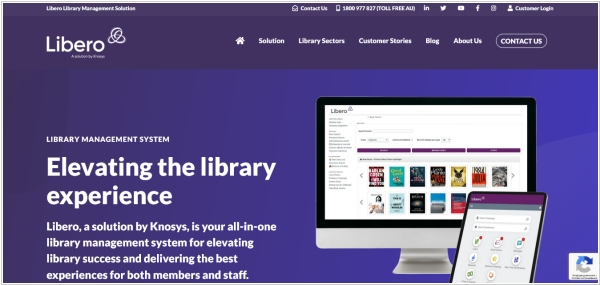
Knosys has unveiled the latest iteration of Libero, version 6, which emphasizes enhancing system functionalities, user interface experiences, and overall workflow efficiency. Key highlights of this release encompass the introduction of Two-Factor Authentication (2FA) to bolster security and access control for the Libero 6 Dashboard login, providing users with the option to employ an additional layer of security through Email, SMS, or Time-based One-Time Passwords (TOTP). Additionally, there are notable enhancements in bibliographic data management, including improved capabilities for merging data within existing records and expanded MAB to MARC conversion tasks. Moreover, member experiences in the WebOPAC have been refined to enable more precise searching and feature-rich registration forms, while navigation within the Member Portal is now more seamless with enhanced sorting and visual upgrades.
2023. Libib adds Patron freeze to prevent self-checkouts/holds
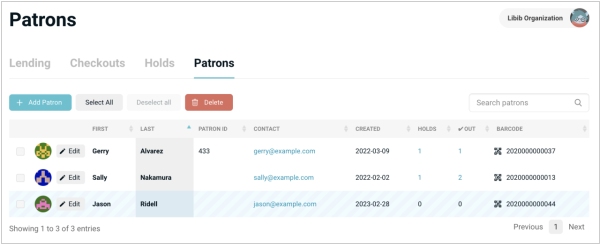
Cloud Library Management software Libib has introduced a new feature called Patron Freeze for Pro accounts. Previously, in Libib Pro accounts self-checkouts were available through the library's published platform or a kiosk. However, ensuring that patrons didn't exceed their item limits or place excessive holds relied solely on the honor system. The only way to address this issue was by deleting the patron entirely, which resulted in the removal of their patron histories and current checkouts/holds—something undesired. Now, Libib offers library managers the ability to freeze a patron's account. If a library manager chooses to freeze a patron, that patron will lose the ability to independently check out items or place holds. Instead, when they try to check out an item, they will receive a notification indicating that their account is currently frozen. To facilitate easy identification, any frozen patrons will be visually distinguished with a blue striped background when viewing the list of patrons.
2022. Koha enables two-factor authentication
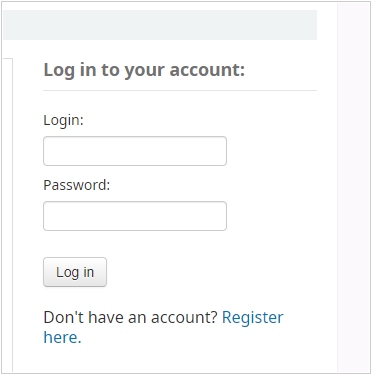
The new version of ILS system Koha 22.05 introduces an optional initial implementation of two-factor authentication (2FA) to enhance security during staff interface logins. This new feature incorporates time-based, one-time passwords (TOTP) as the second authentication factor. Librarians can utilize a dedicated application to manage the TOTP and obtain the necessary code for logging in. To enable 2FA for their account, librarians can navigate to More > Manage Two-Factor Authentication. The setup process involves the following steps: 1) Scan the QR code using an authenticator app. 2) Enter the generated one-time code. Subsequent logins will prompt librarians to enter the authenticator code after providing their regular login credentials. Any authenticator app, such as Google Authenticator, andOTP, and various others, can be utilized for this purpose. It is recommended to use applications that offer backup options for 2FA accounts, either through cloud-based or automatic methods.
2022. Libero to offer libraries more security
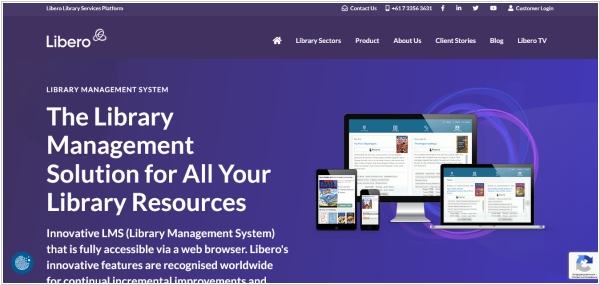
Libero has introduced several enhancements to its cloud-based library management system. These include options for default passwords and improved security measures for library members, courtesy reminder emails that provide comprehensive renewal details in one place, and the ability to store and utilize preferred names for members while maintaining consistency in official correspondence. Libraries now have the flexibility to simplify the initial access of members to online services by setting the surname or telephone numbers as the default password. Additionally, libraries can enforce password changes after the first login to the WebOPAC, ensuring enhanced security. These updates aim to enhance user experience, ensure data security, and promote inclusivity within library services.
2021. Evergreen adds acquisitions administration, holdings maintenance
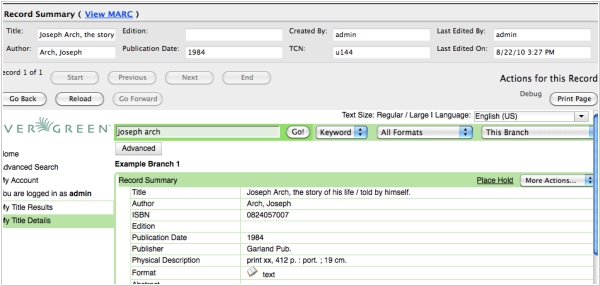
The release of Evergreen 3.8 is announced by The Evergreen Community. Evergreen is a highly-scalable software designed for libraries to facilitate the discovery of library materials by patrons and assist in managing, cataloging, and circulating those materials, regardless of the library's size or complexity. This release brings numerous new features and enhancements, such as Angular rewrites of several staff interfaces including acquisitions administration, holdings maintenance, item attributes editor, patron triggered events log, and item triggered events log. Additionally, it introduces a case-insensitive option for browsing headings, a new interface for editing notes attached to bibliographic records, improvements to the staff interface for browsing bib records attached to a heading, and consolidation of patron notes, messages, alert messages, and standing penalties into a unified notes interface. Other additions include settings for determining item value based on item price and acquisition cost, enhancements to override event dialogs in checkout and renewal interfaces, the ability to edit the patron photo URL during registration, settings for hold stalling based on pickup library, settings for default pickup location for staff-placed hold requests, utilization of a newer Stripe API for credit payments in the public catalog, display of cover images in My Account pages for items checked out, check out history, holds, and holds history, and new reporting views such as item statistics and Dewey call number blocks and ranges.
2014. Bibliovation adds new Discovery Layer
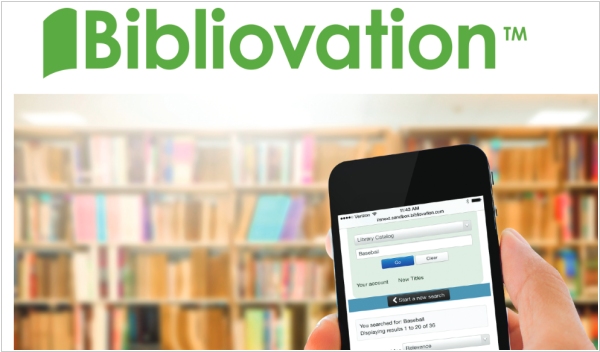
LibLime introduces the official launch of Bibliovation 5.6. It revolves around a novel Discovery Layer within the application. It is constructed using a RESTful API, enhancing local customization and enabling seamless integration with crucial third-party products and resources utilized in today's academic libraries. The release also includes noteworthy additions such as the ability to merge authority records, an OPAC editor, and support for mobile devices. Similar to earlier versions, the entire Bibliovation application operates within the Plack environment, resulting in improved performance. Additionally, Bibliovation utilizes the Solr search engine, a widely popular open-source enterprise search platform derived from the Apache Lucene project. Solr boasts exceptional scalability, facilitating distributed search and index replication. This technology empowers the search and navigation functionalities of numerous prominent internet sites across the globe.

